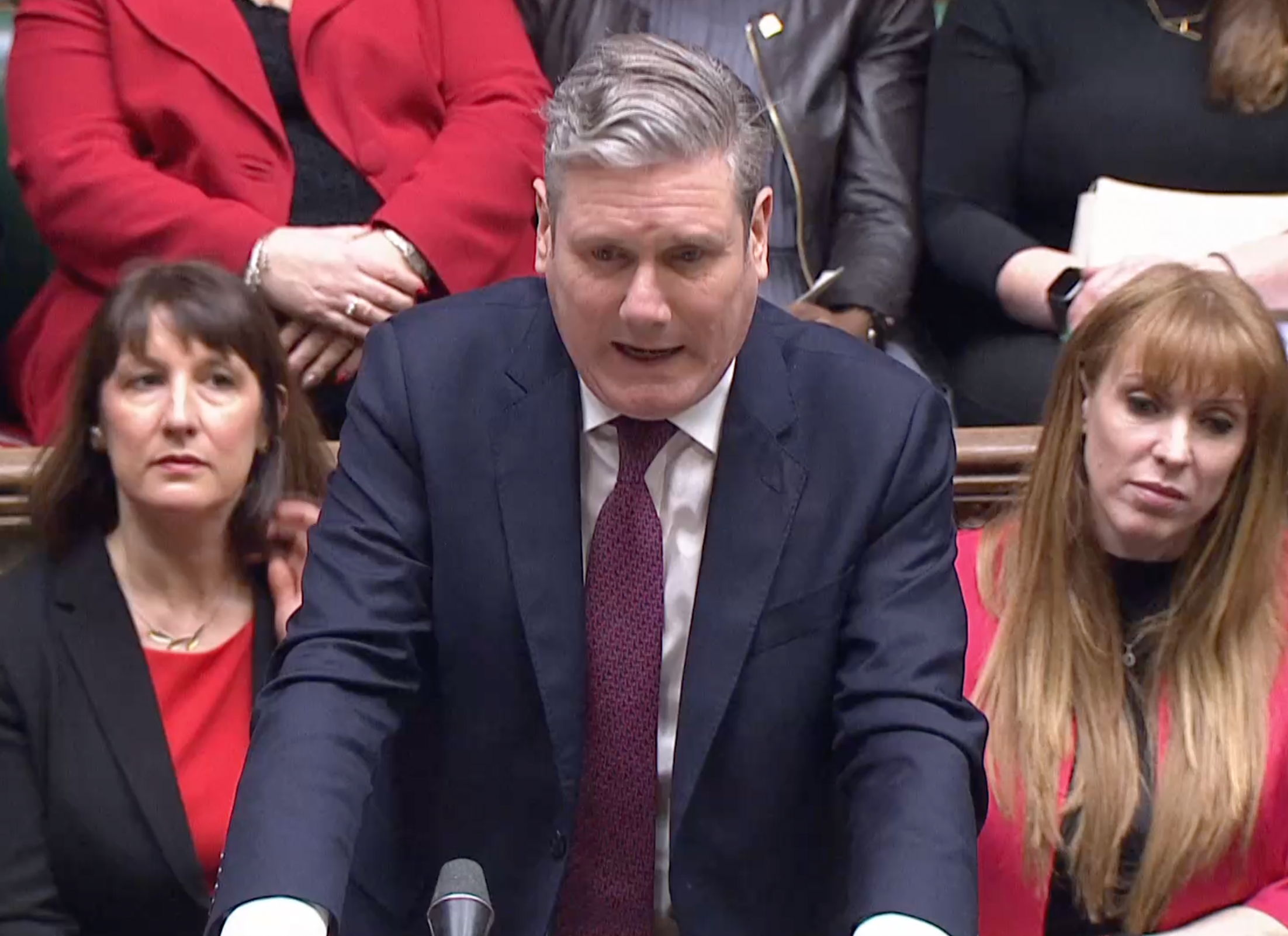Keir Starmer wisely avoided the subject of Covid in care homes today
But did Rishi Sunak drop a hint at Prime Minister’s Questions about another negotiating triumph, this time on small boats, asks John Rentoul


What could Keir Starmer ask about today, two days after the prime minister’s negotiating triumph on Northern Ireland? I assumed yesterday that it might be the NHS: it may be Labour’s comfort zone but people care about it and large parts of it are in a terrible state.
Then at 11pm last night it seemed that the Labour leader had been presented with a gift on a silver plate: The Daily Telegraph reported that Matt Hancock, the unpopular former health secretary, had ignored the advice of Chris Whitty, the popular chief medical officer, on protecting care homes from coronavirus.
So it came as some surprise when Starmer’s first question to Rishi Sunak was about how young people in Britain would soon be learning how to say “Auf Wiedersehn, Pet” in Polish. It seemed that the prime minister’s prep team had failed to anticipate this line of questioning – depending as it does on a projection that suggests that the average family in Britain will be poorer than in Poland by 2030 – and so Sunak gave a prepared reply about something else.
He said that, since they were discussing living standards, what people were worried about was the cost of gas and electricity bills, and that the government was currently paying over half of the typical household’s bill, which he said was one of the most generous support schemes in the world.
He had obviously expected to be asked whether the government would extend its support beyond April because he said that Starmer must know that “future decisions to support the cost of living are for the Budget”. Still, he managed to give a strong hint that the scheme would indeed be continued.
Starmer then asked two questions about the windfall tax, to which Sunak said, “We did it a year ago,” followed by two questions about house building. This is not a strong subject for Labour, a party that talks platitudes about devolution, which means giving local residents a veto over development.
Starmer’s choice of questions caught Sunak out again: Sir Lindsay Hoyle, the speaker, intervened to point out that the prime minister must have misheard the question because he attacked Labour’s opposition to any new oil and gas licences in the North Sea.
It was only for his sixth and final question that Starmer mentioned the Covid disclosures in a newspaper. He said cautiously that “we don’t know the truth of what happened yet”, and bolted for the safety of demanding that the public inquiry complete its work quickly – by the end of this year.
This was a surprisingly legalistic approach to a subject that could be a great political opportunity. Most people in the country believe that the government allowed the infection to spread in care homes, killing thousands who need not have died. But Starmer is rightly wary of making such a claim on the basis of a newspaper headline, itself based on a partial reading of WhatsApp messages.
As Sunak observed, when pointing out that he had to respect due process and could have no influence on when the public inquiry reports, Starmer used to be a lawyer in a previous life. A more cynical politician than the Labour leader might have tried to exploit the public’s simple anti-government view but there would always have been a risk with that.
On close reading, the Telegraph story fails to make the case that Hancock defied Whitty’s advice. One of the strongest defences available to Hancock – and indeed to Boris Johnson – is that, in the first phase of the pandemic at least, they followed the advice of the scientists at all times.
It was notable that in the debate on the same subject that followed, Helen Whately, the social care minister, had no difficulty in defending the government’s position. Starmer was wise to steer clear and to sloganise about “13 years of Tory failure” instead.
The most interesting exchange at Prime Minister’s Questions came at the end, when Patrick Grady, the Scottish National Party MP, asked about the coronation choir, which will include refugee choirs. He asked: “If it turns out that any of the refugees taking part in that choir arrived here in small boats, should they be deported to Rwanda before or after they sing for the King?”
Sunak, who had been going through the motions for most of the session, assiduously referring to his notes about each question, with the photo of the MP asking it at the top of the relevant page in his folder, suddenly came to life. He seemed genuinely angry that Grady had asked such a flippant question just after Craig Tracey, the Conservative, asked about the death of 50 people in an unseaworthy migrant boat off Italy.
“There is absolutely nothing compassionate about tolerating illegal migration,” Sunak said. He insisted that the government’s plan to detain and remove people arriving by small boats “is the only way to break the cycle of these criminal gangs and stop people dying needlessly”.
It made me wonder if he might be close to a deal with the French government that he could announce when he meets Emmanuel Macron on 10 March. That would be a negotiating triumph that even more voters would care about than the Windsor deal on Northern Ireland.






Join our commenting forum
Join thought-provoking conversations, follow other Independent readers and see their replies
Comments